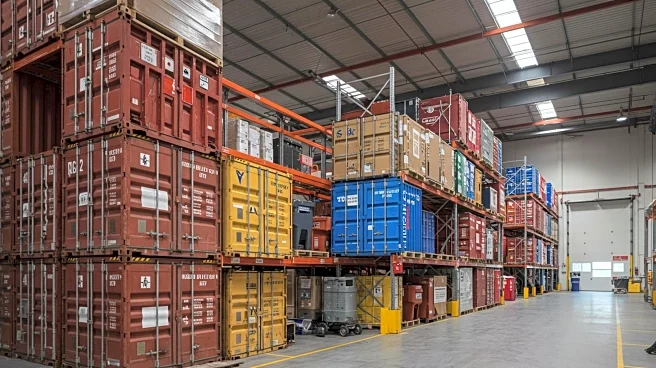What's Happening?
Walmart and Target have adopted a front-loading strategy to mitigate the impact of potential tariffs on imported goods. According to data from ImportGenius, these retailers have accelerated the shipment of popular items into the U.S., including Halloween costumes, holiday decorations, and various toys. This strategy was particularly evident during the summer of 2024 and early 2025, as companies prepared for potential disruptions from the East Coast Longshoremen strike and Liberation Day tariffs. The data, derived from U.S. customs records, highlights a significant increase in imports through major U.S. ports, with a 15.6% rise in the first four months of 2025 compared to the previous year.
Why It's Important?
The front-loading strategy by Walmart and Target underscores the challenges faced by retailers in navigating international trade uncertainties. By accelerating imports, these companies aim to ensure product availability and maintain competitive pricing despite potential tariff hikes. This approach reflects broader industry trends, as other retailers also increased imports to avoid supply chain disruptions. The strategy's success could influence future trade practices and inventory management across the retail sector, impacting consumer access to goods and pricing dynamics.
What's Next?
As Walmart and Target prepare for their upcoming earnings reports, the effectiveness of their front-loading strategy will be closely scrutinized. The potential impact of tariffs and trade disruptions remains a concern, prompting retailers to continue exploring strategies to safeguard their supply chains. Stakeholders, including investors and industry analysts, will monitor how these strategies affect financial performance and consumer satisfaction. Additionally, ongoing trade negotiations and tariff policies will play a crucial role in shaping future import strategies.










